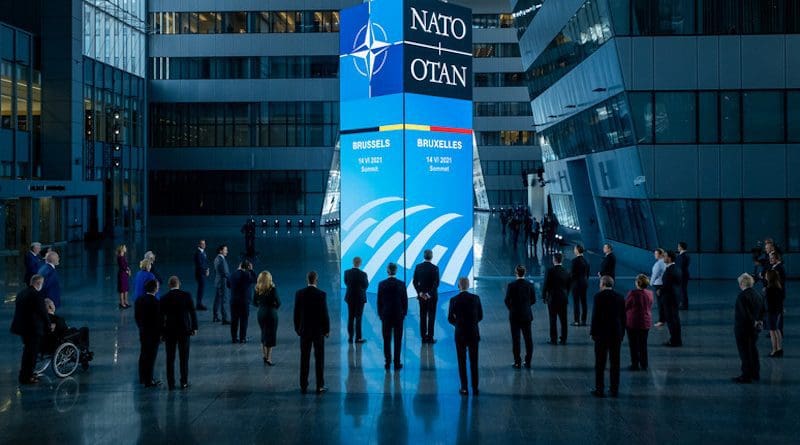NATO Supports Bosnia’s Integrity, Laments Divisive Language
By Anja Vladisavljevic
NATO heads of states and governments attending Monday’s alliance summit in Brussels vowed to support the territorial integrity and stability of Bosnia while reaffirming “unity, solidarity, and cohesion, and pledging to open a new chapter in transatlantic relations” and address “Russia’s aggressive actions that constitute a threat to Euro-Atlantic security” and “China’s growing influence”.
The summit was attended by US President Joe Biden for the first time since he took office. NATO also tackles climate change for the first time.
In the summit communiqué, issued after the meeting, turning the Balkans, NATO allies said: “Allies strongly support the sovereignty and territorial integrity of a stable and secure Bosnia and Herzegovina in accordance with the General Framework Agreement for Peace in Bosnia and Herzegovina [known as the Dayton Peace Accords] and other relevant international agreements, encourage domestic reconciliation, and urge political leaders to avoid divisive rhetoric.”
That part was particularly important to Croatia’s representative, President Zoran Milanovic, as he announced ahead of the summit that we would not consent to the closing declaration without mentioning the Dayton Peace Accords.
According to Milanovic, the problem was solved before the summit, as he had discussed the issue with Jens Stoltenberg, NATO Secretary-General, on Sunday.
“The secretary-general called me yesterday… and everything was resolved in half a minute. It’s a small thing for this summit, but for us it’s Bigfoot,” Milanovic said earlier on Monday.
The 1995 Dayton Peace Accords, which ended the 1992-5 war in the country, retained the former Yugoslav republic’s boundaries and created a multi-ethnic government in Bosnia. It also created two autonomous entities, the mainly Bosniak and Bosnian Croat Federation of Bosnia and Herzegovina and the Bosnian Serb-led Republika Srpska.
Bosnian Serb leaders have frequently threatened to secede from the country but have never acted on these threats, mainly because of a lack of foreign support.
On the other side, many officials in Croatia, and many Bosnian Croats, still advocate the formation of a so-called ‘third entity’ in Bosnia, which would be Croat-dominated, similar to the Serb-led Republika Srpska.
Bosnian Croats also want election laws amended to ensure that the numerically dominant Bosniaks cannot elect Croat representatives.
On December 5, 2018, Bosnia was admitted to the Membership Action Program, MAP. A year later, the Bosnian Presidency accepted a document called the Reform Program, which is identical to the Annual National Plan, ANP, prepared by any country wishing to become a member of NATO. It is a plan for reforms in several areas, including political, security, legal and defence reforms.
Bosnia is currently participating in the MAP and is the only country in that status, after North Macedonia was admitted to membership in March 2020 and Montenegro in June 2017.
According to the summit communiqué, the “Western Balkans is a region of strategic importance for NATO, as highlighted by our long history of cooperation and operations”.
When it comes to Serbia-Kosovo relations, NATO said allies “support the EU-facilitated Dialogue and other efforts aimed at the normalisation of relations … and urge the sides to seize the moment and engage in good faith towards reaching a lasting political solution”.

